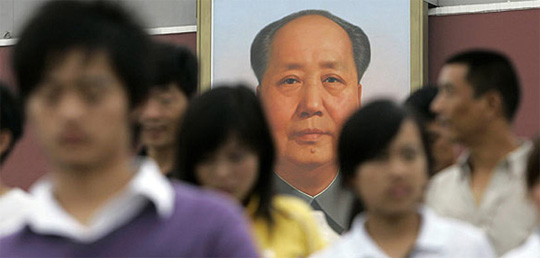China’s 2009 Anniversaries to Produce a Cautious Environment
Jan. 5 – With so much talk of the impact of the global financial crisis on China during 2009, and many predictions being made about it (one of the best being Jack Perkowski’s), not much is being said about the impact that three anniversaries – two of them unwanted – that China will have to cope with during the coming year.
With all of them falling into one specific year, China is sure to see an increase in internal military operations, an increase in overall security concerns, and a continuation of the current difficulties for foreigners in obtaining visas. Journalists will have cause to complain, and anti-China media will have plenty of opportunities to lambast a country still not entirely forgiven for producing such a spectacular Olympics, and still along the evolutionary path of reform. Welcome then, to 2009 and a year of caution, tension and nervousness in a country still feeling it’s way amongst varying international perceptions over what China actually represents. The anniversary events as they unfold in China during the year are as follows:
March 10 – 50th anniversary of the Tibetan uprising and exile of the Dalai Lama
2009 represents the 50th anniversary of the Dalai Lama fleeing Tibet and going into exile in India, an event preceded in that same year of the “Lhasa Uprising” which began on March 10, 1959, and led to the shelling of the Dalai Lama’s summer Palace, Norbulingka and Lhasa’s major monasteries on March 19. Combat lasted only about two days, with Tibetan forces being badly outnumbered and poorly armed. An estimated 86,000 Tibetans died. The Dalai Lama left Tibet shortly afterwards with assistance from the CIA and has been exiled ever since. Tibet was subsequently re-organized into the “Tibetan Autonomous Region of China” and has been under direct Chinese rule since as part of the Chinese mainland.
June 4 – 20th Anniversary of the Tiananmen Square Incident
2009 also marks the 20th anniversary of the crackdown against pro-democracy protestors in Tiananmen Square. The protests, which led to an occupation of the square, traditionally a place for the Chinese people to show their feelings, began on April 15, 1989, with thousands of students and other protestors camping in the square itself and setting up a “Goddess of Freedom” statue. The protests were sparked by the death of pro-market and pro-democracy official, Hu Yaobang, who protesters wanted to mourn. By the eve of Hu’s funeral, 100,000 people had congregated at Tiananmen. While the protests lacked a unified cause or leadership, participants were generally against the authoritarianism and voiced calls for economic liberalization and democratic reform within the structure of the government. During a stand off between protestors and a seemingly paralyzed central government, similar protests began to erupt in other Chinese cities and rapidly began to turn violent. By early June, the government had had enough and moved the military in to disperse the crowds and restore order. Tanks rolled in, shots were fired and an estimated 3,000 Chinese nationals were killed. The event has subsequently been recognized as a “mistake” by the Chinese government, although feelings about it internationally, and especially in Hong Kong and Taiwan, still run high.
October 1 – 60th anniversary of the founding of the People’s Republic of China
Mindful of the about the above two unwanted anniversaries, in addition to the current economic situation and the aftermath of the Sichuan earthquakes, China is set to display a “stately but frugal” parade to commemorate the 60th anniversary of the founding of the modern China. Chairman Mao officially proclaimed the establishment of the People’s Republic of China from on top of Tiananmen Gate on October 1, 1949.
Accordingly, it is these potentially dynamic anniversaries, rather than the effect of economic problems that will shape the mentality and investment environment in China during 2009. Personnel living in China may find increased restrictions during the year in terms of website access and travel to certain regions, while it is a given that visa issuance to foreign nationals, and especially to reporters, NGO’s and certain aid, democratic and foreign governmental organizations may find themselves curtailed during the year. China’s desire will be to see through the next nine months until after the National Day celebrations in October with minimal internal disruption, and visitors to the country can expect to find barriers placed in their way concerning freedoms of movement and speech during this time. While many Western readers may find such concepts abhorrent, the fact remains that China has to keep a lid of these potentially explosive events and that the price of doing so, and maintaining peace, will, for 2009, mean the temporary cessation of some liberties usually taken for granted within the PRC by foreign travelers, businessmen and expatriates during the year.
- Previous Article China Increases Export Tax Rebates
- Next Article China’s M&A Resilient Despite Global Downturn














